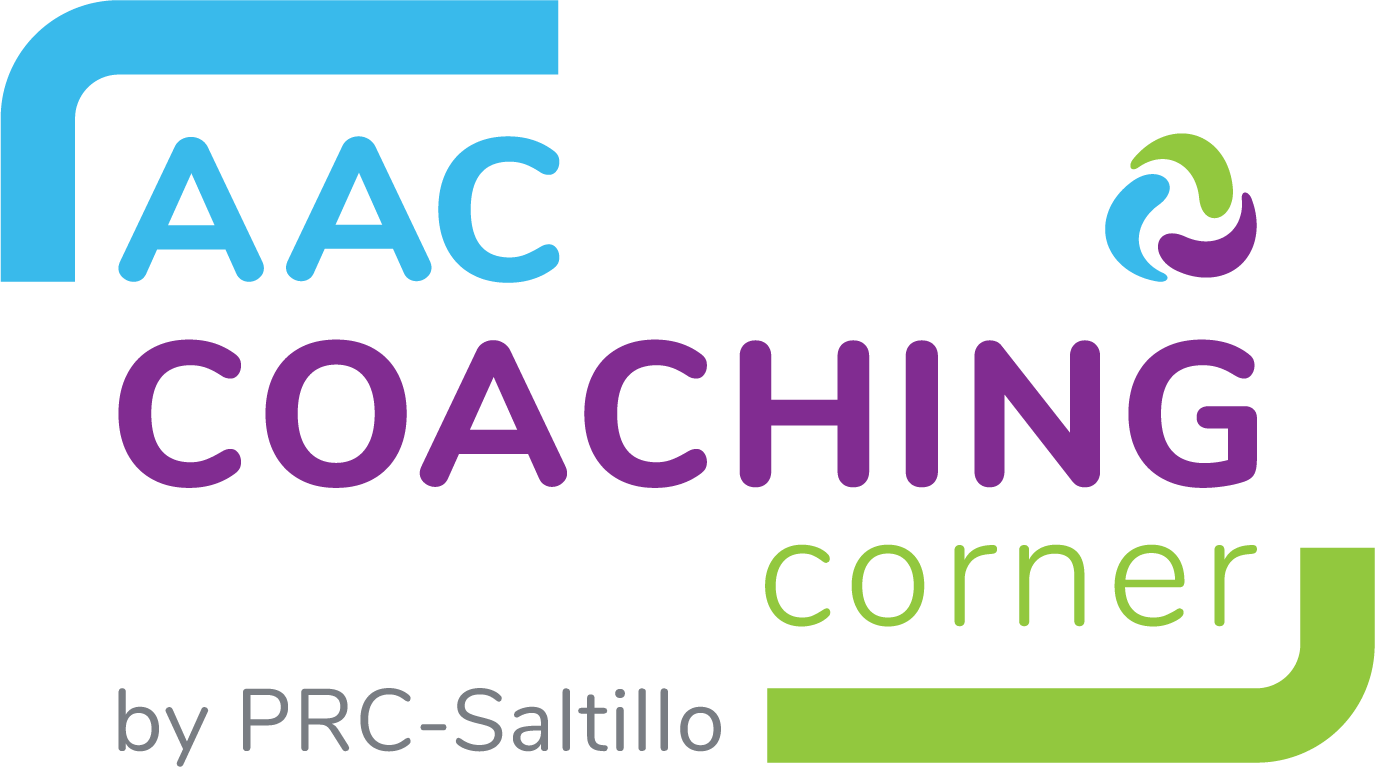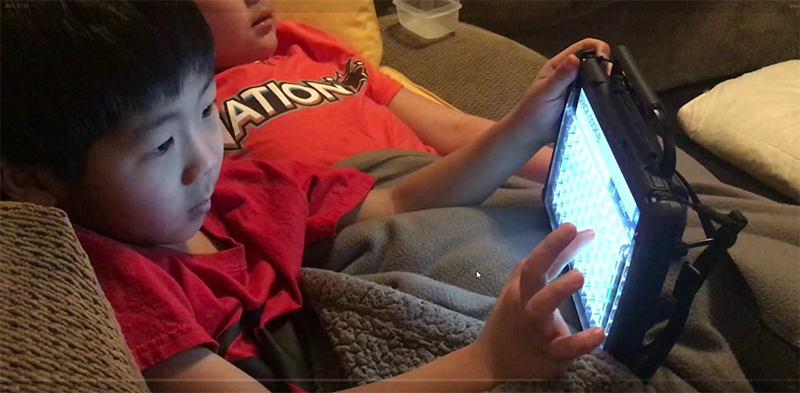"I love him sooooo much!" I squeal and clap my hands, then stretch my fingers out and wiggle them, eyes wide, crouched, ready to tickle my six-year-old son Tobin.
He looks me right in the eyes, an expectant grin growing across his face. We lock eyes for a good five seconds: I’m crouched and ready, while he stands with that expectant grin, eyes wide looking right into mine.
Then I move.
I rush over to him and he begins to do his belly-chuckle cackle before I ever even get to him. I tickle and tickle and he chuckles and cackles and we both end up on the ground laughing.
And I can't help but think how far we've come.
How only months ago I would do the same crouch, say the same love words, clap my hands the same way – and my son would have no response. How I would reach him and tickle and tickle and he might adjust his body a bit but continue to look down, maybe giving a grin, maybe uttering some chuckles, and then I would stop. And he would go back to looking down at his car.
So much has changed since Tobin received his AAC device.
The Search for a Solution
"Speech delay."
Those were the only two words that would have signaled any kind of notice that our son had something going on.
But those words meant nothing to me, as I scoured each report during the 20 months of waiting to bring our son Tobin home from Korea. We had waited a year to be matched with him, and when we looked into the eyes of our then seven month-old, we all fell in love and knew deep down that he was our son.
The Well Child Reports were essentially a bi-monthly checklist of medical examinations. A few times a doctor's chicken-scratch would read "Cute and Fine" and there would be a list of the milestones he would accomplish. It wasn’t until about the 15-month check-up that the words "speech delay" started appearing; but everything else seemed on track, so we didn't think much about it and went back to falling in love with pictures and getting his room ready and preparing for his arrival.
We adopted our oldest son from Korea, and I had been reading up on toddler adoption and attachment parenting and connection, so…well, felt like we were as prepared as we could be for the changes to come.
Within a week of his homecoming, I realized we weren't prepared at all.
All of the behaviors and challenges and struggles I had anticipated were not challenges at all. Our challenges were unique and difficult to describe. And it was difficult to find resources because they didn't fit into the categories of books and help I had been researching.
Meltdowns that would last two hours then we'd have an hour break and then another two-hour meltdown and then an hour break and then another two-hour meltdown. Repeat until bedtime. I'd restrain him to protect him from himself…and then need protection myself.
 |
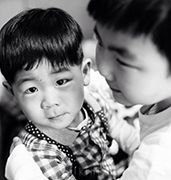 |
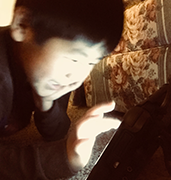 |
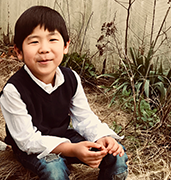 |
All of the signs of autism were there, but some of those signs overlap with the signs of a child in transition and struggling with attachment, so autism wasn't even on our radar. We just kept thinking we needed to keep working on attachment.
We felt like we couldn't ask for help. It had to be us, his family, who helped forge this attachment, so each day for almost a year, we kept at this cycle.
And we were all drowning.
It wasn't until a friend visited and told an anecdote of how his son didn’t talk until he was four and everyone thought he had autism but it turned out that his son was just a "late talker."
I had not even thought of autism.
I started scouring the internet for research. I took every test I could find and EVERY SINGLE TIME, Tobin would show up as high risk for having autism.
This shined a whole new light on the challenges we had been facing.
I didn't know about autism, but the more I read, the more the pieces began to fit. We went to an international adoption clinic and the psychologist examined him and advised us to go to one of the Autism Centers of Excellence in our state, and we began our autism journey.
The rest of our story is probably similar to others: Tobin received the ASD diagnosis. We spent the day at the clinic and left knowing he was on the spectrum. A month later we received our full folder full of observations and recommendations. And even though we left the clinic thinking he was mild to moderate on the spectrum, the full diagnosis revealed he was evaluated as "severe" with a language delay and a cognitive delay.
Tobin was 34 months old. And all I could think was how much time we had lost.
Discovering AAC
We began the hunt for resources.
So much research. So many phone calls and meetings.
We live in a very small town in the rural midwest, and I knew from my research that behavior therapy was what we needed. And I couldn't find it anywhere. I was calling friends of friends of friends of friends. Going to meetings. Researching and researching. Finding closed door after closed door.
Finally we found an amazing therapy center two hours away from our home. We made the commitment to drive him every day, and began the journey in the summer of 2015.
I can't even explain the magic of this place. Of getting him the right therapy from the right people. It's made all the difference. In every one of us.
His teachers and therapists helped us potty train, helped us strategize how to survive (and sometimes even thrive!) trips to the store, how to help him cool down before a meltdown, how to survive a meltdown…I could go on and on.
And it was there we learned of the possibility and potential of an AAC device.
Discovering His Voice
Tobin received a diagnosis of Profound Verbal Apraxia in the fall of 2017. By December 29 of the same year, his Accent 800 arrived at our door.
And life has never been the same.
Our son has words.
Tobin had already been working with a device at school, and from the moment I put the device into his hands, he began poking and pushing the buttons.
His first request: "I want black cookie."
Our oldest son, Knox, began clearing out the pantry, offering all kinds of sweets to Tobin (which he thoroughly enjoyed!) but nothing was "black cookie." My husband, Brian, suddenly smiled "OREO!" I immediately text his speech therapist, and she confirmed that is how he requests Oreos during session with her.
Brian ran to the door to leave for the store and called out, "If you guys think of anything else I need to get, let me know!" And Tobin quickly pushed "Ice cream candy ice cream."
This was within the first five minutes of having his device in his hands at our house.
We saw an immediate change in Tobin's demeanor:
My sister came over to hang out with Tobin while the other three of us went to the movies. When I told Tobin, he ran upstairs to his closet, created a makeshift step stool, picked out an outfit and dressed himself. He'd never before shown any care about his wardrobe.
Three months after the device, we officially declared Tobin "potty trained." (After almost three years of trying.)
Tobin has become so much more present and engaged, even choosing to be with the kids when we have friends over instead of with the adults or by himself.
He is looking up and out. And eye to eye.
He's attempting new words on his own.
The volume on his constant jabbering has turned way, way up! He walks around the house smiling and shouting and pressing "ice cream" and "black cookie" and "Jello." (No wonder he seemed mad so much of the time—we haven't had any of the things he likes!)
Tobin has found his voice.
One night he requested "want chicken." I showed him the leftover chicken and dumplings and he shook his head "no" and pressed "I want chicken" again. I told him we didn’t have any other chicken. And he pressed "go"” and then "apples" and then pressed the sentence and the voice said "I want chicken go apples."
He wanted McDonald's.
We all hopped in the car (at 8 p.m.) and got our boy a Happy Meal with chicken nuggets and apples and he smiled while shoving nuggets in his mouth the Whole. Way. Home.
He's told us what he'd like to eat at a restaurant: "rice chicken." He's told us when he's ready for bed: "tired sleepy."
He's told us he wants gum: "pink chew it."
He's told us he wants the iPhone: "internet World Wide Web iPhone."
He's able to tell us when he's upset: "Crying I sad."
And WHY he's upset: "orange car blue door" (He had lost his favorite car.)
We carry his "talker" with us wherever we go. This means that in the middle of Costco, I've heard "I want home," at a church function he's typed, "leave go now," and I'm pretty sure I heard "dumb jeans" in the changing room at Kohl's. (Important to note that we never used to even do errands like this!)
He's even called me "Mom."
Words.
My son has words.
And it's changing everything.
Finding the Light
It's difficult to describe what it's like to have a son who cannot speak.
There are so many questions. All the time.
To be completely honest, it has often felt like I'm talking to the air. And admitting that breaks my heart and makes me feel sad and shame.
Because it's been heartbreaking and confusing and crippling and maddening to not know what my son is thinking or feeling or is capable of thinking or feeling.
I really can't even explain how challenging those moments are, trying to determine if my son is experiencing sadness from the trauma of adoption or if he is frustrated because he can't communicate or if he just wants a cookie.
I have been so angry with myself for lack of patience, for the inability to bridge the gap between us.
But the tickle moment in the kitchen? Worth every minute of the hard of the past few years.
And yesterday, when I was running errands and my husband had the boys at home, Tobin pressed "Mrs. Mom" on his talker.
"I missed you, too." I said to him when his dad relayed the story to me when I got home.
These are sacred, holy moments we would have never been able to share if it weren't for the supports around us and his AAC device.
We still have much to discover and learn, and in the short time we've had the device, we've had to get a repair, a couple of new cases, and to constantly stop Tobin from trying to love his device to death. (Because our sweet boy tries to destroy anything he truly loves – but that's another story.)
And we've been absolutely amazed at the customer service PRC has provided. It's been worth every penny of going with the company, as they have been so patient, so understanding, and so prompt with support as we all figure what it looks like for our rambunctious six year-old to have his own personal computer.
The root of Tobin's name, "tob" means "good." Not perfect, but "good." And that's exactly what we're experiencing with this device.
So we're learning and moving and following Tobin’s lead as he uses his words to point us to Good.
Anna-Marie Beard is an ordinary mom of two extraordinary boys, one of whom is on the autism spectrum. She and her husband Brian write about finding the Good in the hards and highs of life on their blog www.pursuingtob.com.
Blog









